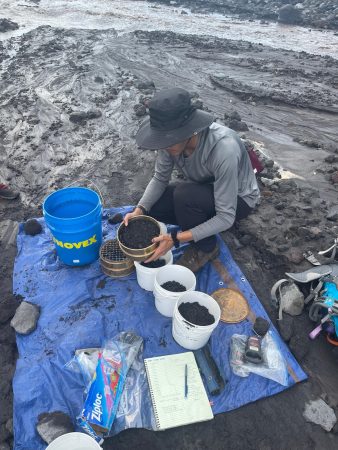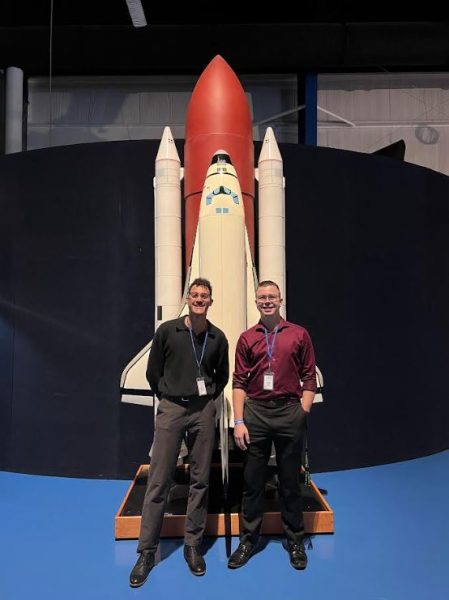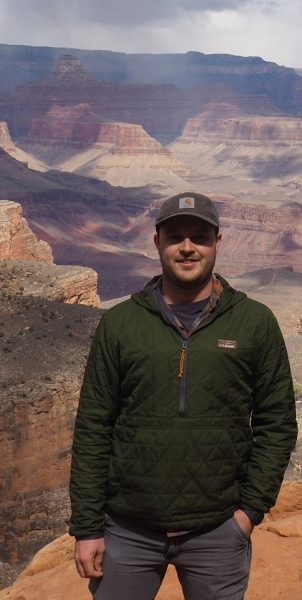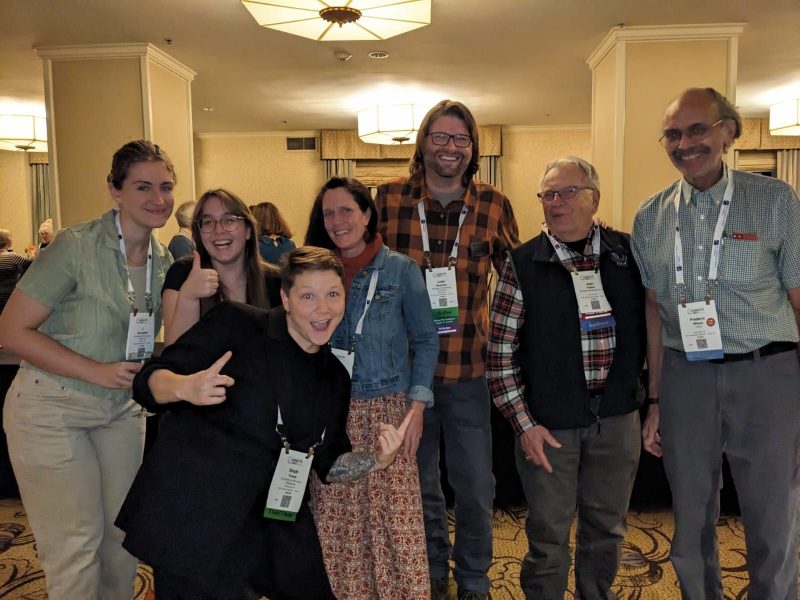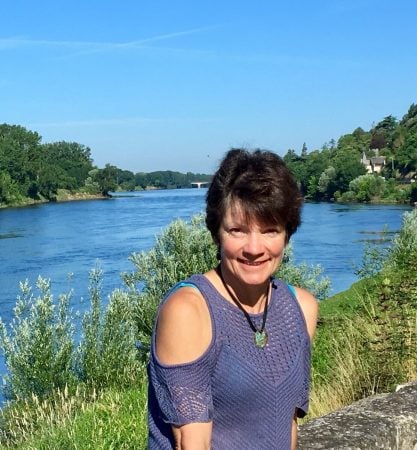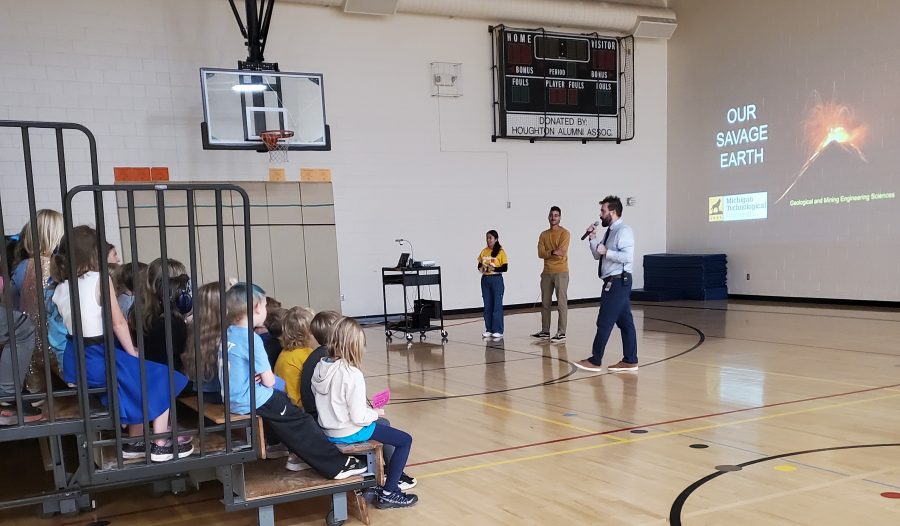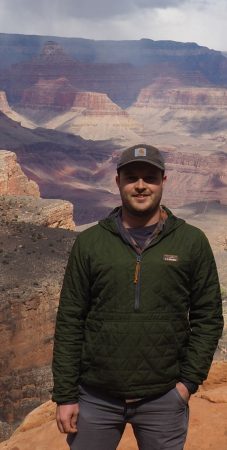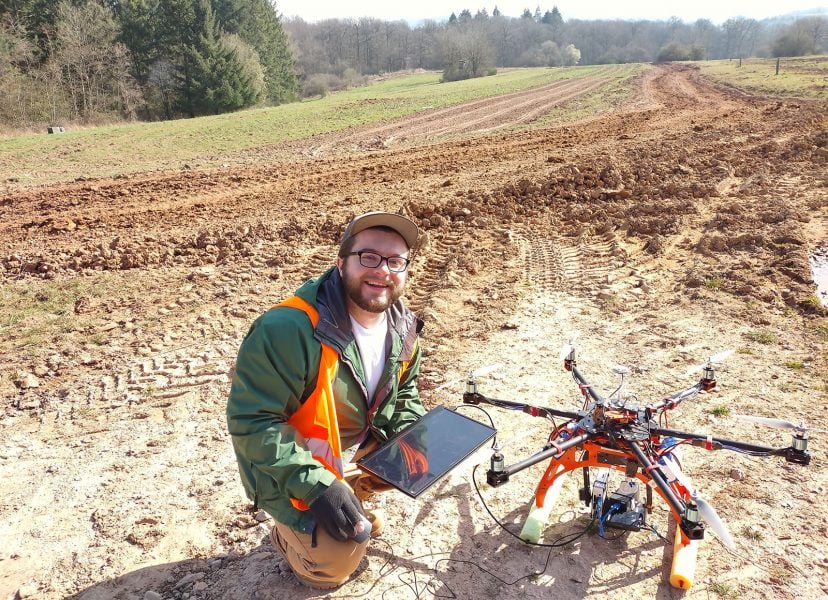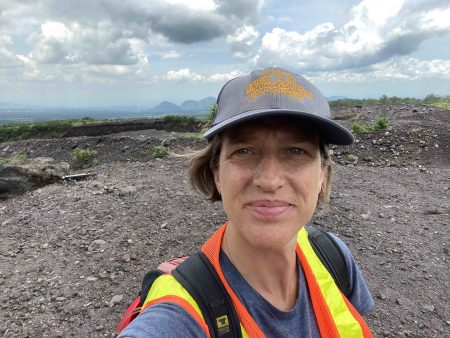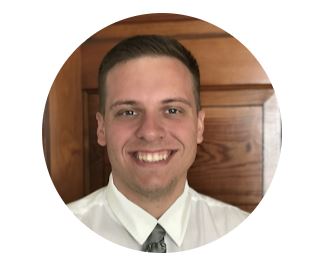From his first weeks in the GMES Department, Brendan Harville was interested in getting involved in research. Through a handful of well-timed events in Brendan’s first semester, he seized an opportunity to submit a research proposal with Dr. Greg Waite to the Michigan Space Grant Consortium (MSGC) undergraduate fellowship to conduct research regarding “Seismic Amplitude-based Lahar Tracking for Hazard Risk Mitigation at Fuego Volcano in Guatemala.” Brendan’s proposal was selected, leading him to plan fieldwork in Guatemala with fellow PhD student Gustavo Béjar-López. Brendan and Dr. Waite used seismic data to create a model that
can locate and track how lahars propagate down drainages from Fuego’s flanks. The work took many twists and turns (as research often does!) and resulted in an improved understanding of how the morphology of Fuego and its many drainages influence lahars and their impacts. Brendan’s work was accepted by MSGC for an oral presentation at the MSGC Annual Conference on October 21, 2023. GMES student Conor Large accompanied Brendan for his presentation over MTU’s Fall Break.
Reflecting on the entire MSGC experience, Brendan says, “My experience with undergraduate research through MSGC was invaluable. I met, connected, and collaborated with many admirable and inspiring peers and mentors for which I am truly grateful for. Special experiences like these are what invigorate and propel students like me toward future goals and aspirations. I would never have enjoyed this opportunity if I hadn’t pushed through my initial fears and feelings of self-doubt.”
GMES celebrates Brendan’s accomplishment and is proud to have submitted four new MSGC proposals this week for the Consortium’s annual call.
Check out Brendan’s day-to-day field campaign journey in Guatemala through his personally made slideshow: Field Campaign Slideshow (bit.ly/Harville_Guatemala_FieldCampaign)
